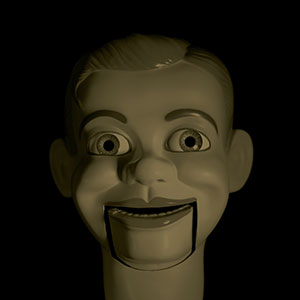 Jon Mueller may be most often recognized as an exemplary and audacious percussionist, but even the most casual experience with his recent works makes clear the depth of his creativity. On this latest album, he draws influences from his other projects (Death Blues, Volcano Choir), as well as builds upon the stylistic developments of his other recent works, such as the heavy use of vocals, to reach an unparalleled depth and complexity of composition.
Jon Mueller may be most often recognized as an exemplary and audacious percussionist, but even the most casual experience with his recent works makes clear the depth of his creativity. On this latest album, he draws influences from his other projects (Death Blues, Volcano Choir), as well as builds upon the stylistic developments of his other recent works, such as the heavy use of vocals, to reach an unparalleled depth and complexity of composition.
It is not hard to read into the multiple meanings of the title Tongues with regard to this record.Most evident is Mueller’s use of looped, wordless vocal passages as a primary source of sound, thus utilizing his own tongue as an instrument.While these two pieces are clearly propelled by his multidimensional drumming and percussion, the repeated vocals often take center stage.By extension, the wordless, otherworldly sounds created very much approximate the pseudo-religiousness of speaking in tongues.They are indecipherable but impassioned collections of sounds and syllables that, paired with the often primal and hypnotic drumming, come together as a religiously unspecific but fanatical bit of spirituality.
Tongues is a solo album, but Mueller is aided with contributions from Cory Allen (on harmonium, tanpura, and Amazonian ceremonial breath) and William Ryan Fritch (playing sarangi, and also a featured player on the last Death Blues recorded).The first half of the album, "How You Look When You're Not Looking" begins immediately with the faux tribal singing; layered and dense atop a simple, pounding drum line.Throughout its 15-minute duration, Mueller keeps the structure and sense of composition dynamic, layering vocal tracks while adding and subtracting instrumental passages.The balance is perfect, because he allows the different segments to repeat frequently enough to truly capture that hypnotic sense of ritualism, but never becoming too repetitive.Vocals change from sung ethnographic forgeries to deep, guttural chants.The second half especially begins taking on a lighter mood, buoyed by the more infectious handclap percussion that becomes more prominent.
The other half of the record, "What I Thought You Said" at first seems to show Mueller putting the focus of the composition back on his traditional percussive tendencies.First an interlocking passage of various chiming sounds, the piece is soon heavily defined by intense polyrhythmic percussion, with the initial vocal elements being dark but subtle accents.Soon, however, his voice appears again in the form of repeating mantras and pseudo-possessed babbling.Each element is a force to be reckoned with on its own, but blended together the piece becomes an intense, chaotic roar.Throughout its lengthy duration, however, the diversity in sound, instrumentation, and dynamics are entirely fascinating.
There are clear ties throughout Tongues to Jon Mueller's other most recent work:the cassette A Magnetic Center, which also featured him working with these same elements.While that release was no slouch at all, there seems to be a tighter focus here, almost a greater confidence in the inclusion of his voice in this style.Because of that, these two pieces have a complexity and richness that stand strongly amongst any of his previous releases.Recognition should also be given to the recording assistance from Shane Hochstetler, who captures every hit of a drum with a clarity and depth that is unrivaled, adding additional polish to an already shining release.
samples:
- How You Look When You're Not Looking (Excerpt 1)
- How You Look When You're Not Looking (Excerpt 2)
- What I Thought You Said
 
Read More

